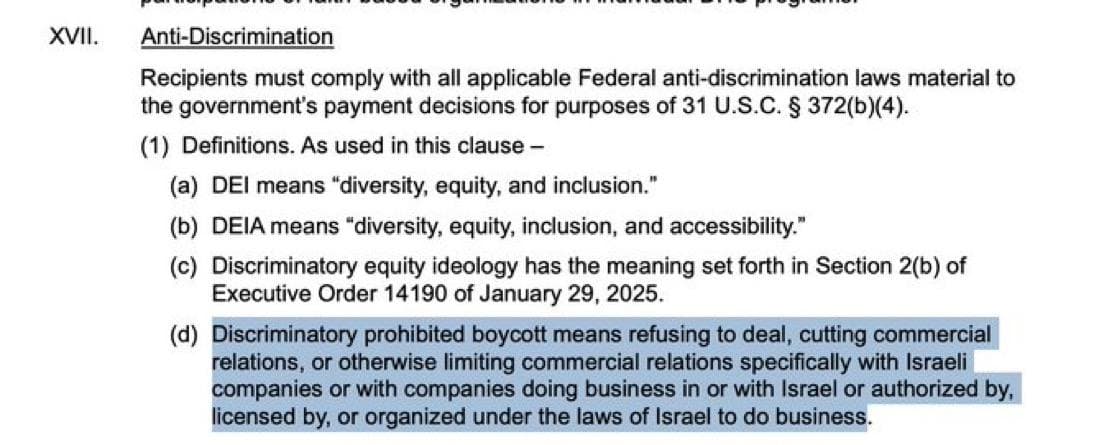Trump Administration Blocks Disaster Relief Funds for Victims Not Partnering with Israeli Firms
The Trump administration"s recent decision to withhold disaster relief funds from American citizens who do not engage with Israeli companies has sparked outrage and debate across the political spectrum. This policy, described by critics as an unprecedented measure, raises questions about the intersection of foreign policy and domestic disaster aid. Victims of natural disasters will now face penalties based on their willingness to support a foreign nation, a move that many find alarming and unconstitutional.
Background & Context
The new policy emerges amid heightened tensions in the Middle East, particularly regarding Israel"s actions in Gaza. As reported in recent developments, Israeli Prime Minister Benjamin Netanyahu has signaled intentions for an indefinite occupation of Gaza, which complicates U.S. foreign relations and aid distribution. The Trump administration"s decision appears to align with a broader strategy to bolster Israeli economic interests, asserting that only those who collaborate with Israeli firms will qualify for federal disaster assistance.
Critics argue that this policy not only undermines the principle of aid distribution but also places American citizens in a precarious position where their access to essential support is contingent upon their foreign business dealings. This raises ethical questions about the role of the U.S. government in prioritizing foreign partnerships over domestic welfare.
Key Developments
According to Saagar Enjeti, a political commentator, the implications of this policy are far-reaching. “American disaster victims will now get punished because they don’t support a foreign government? Totally normal. Totally constitutional,” he remarked, highlighting the absurdity of the situation. The administration has not provided a clear rationale for why disaster relief should be contingent upon engagement with Israeli companies, leaving many to speculate on the motivations behind this directive.
The announcement has drawn criticism not only from disaster relief advocates but also from various political leaders. They argue that the withholding of funds is a blatant misuse of federal resources. “No foreign nation should dictate how OUR disaster aid is distributed,” stated one prominent lawmaker, emphasizing the need for a separation between international relations and domestic support mechanisms.
Broader Impact
This policy could set a dangerous precedent in the allocation of federal disaster relief, potentially politicizing aid distribution in ways that have not been seen before. Experts warn that tying disaster assistance to foreign partnerships could lead to increased suffering for victims who may already be grappling with the aftermath of calamities. In a nation where natural disasters are becoming more frequent and severe, this new directive could exacerbate existing inequities in aid access.
Moreover, the policy could further alienate communities that already feel marginalized or neglected by federal programs. The implications of such a policy are reminiscent of historical instances where aid distribution was manipulated for political purposes, raising concerns about transparency and accountability in government spending.
What"s Next
As this policy unfolds, it is likely to face legal challenges from advocacy groups and lawmakers who are committed to ensuring that disaster relief is available to all American citizens regardless of their foreign business affiliations. There are indications that some states may seek to challenge the federal restrictions in court, arguing that such measures violate constitutional protections against discrimination.
In the coming weeks, as communities react to this controversial policy, further developments may emerge. The administration will likely be under increasing pressure to clarify its stance and potentially reconsider the implications of intertwining disaster relief with foreign economic interests. Monitoring the responses from affected communities and legal entities will be crucial in understanding the future of disaster aid in the U.S.



![[Video] Gunfire between Iraqi security forces and Sadr militias in Baghdad](/_next/image?url=%2Fapi%2Fimage%2Fthumbnails%2Fthumbnail-1768343508874-4redb-thumbnail.jpg&w=3840&q=75)
